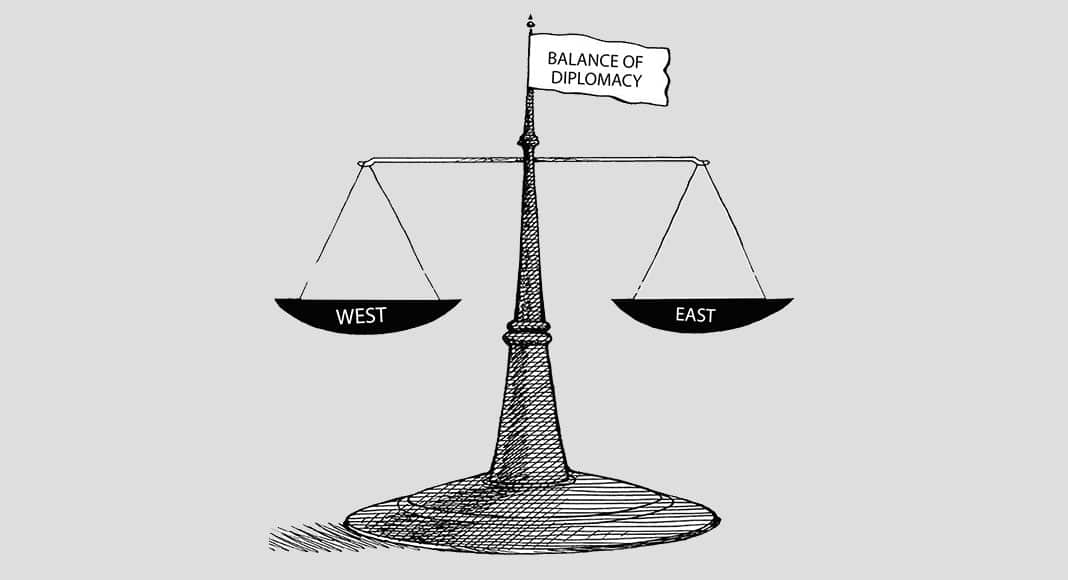
As Ethiopia strives to advance its core interests on the international stage, its first participation in the 16th edition of the BRICS Summit, held from October 22 to 24, 2024, in Kazan, Russia, undeniably helps it to achieve this goal. The government has said as much, noting the platform enabled the country to articulate both its position and Africa’s on important resolutions on economic cooperation, environmental protection, and reforms within the United Nations Security Council. Ethiopia’s accession to the bloc marks a significant milestone in its foreign policy, economic strategy, and international relations. This membership not only enhances Ethiopia’s global profile, but also offers opportunities for economic growth and development. However, leveraging BRICS membership effectively requires Ethiopia to adopt a series of strategies to navigate the complexities of international diplomacy, economic partnerships, and regional stability.
First and foremost, Ethiopia must thoroughly understand the dynamics within BRICS. As Ethiopia engages with multiple BRICS countries, it is crucial to strike a balance between these relationships to avoid alienating any partner and to prevent over-reliance on a single power. Each BRICS country has distinct political interests and values, which may not always align with Ethiopia’s goals. Accordingly, it is incumbent on it to cultivate diversified partnerships and manage carefully the competing geopolitical interests of the member states, particularly in Africa, in order to maintain its sovereignty and avoid being drawn into conflicts among these nations. At the same time, Ethiopia must be wary of the geopolitical implications of its BRICS membership, particularly the influence of China and Russia. While these countries may offer substantial economic benefits, their political systems and international conduct differ significantly from those of Ethiopia’s traditional allies, such as the United States and the European Union. Therefore, it’s in its strategic interest to maintain a diplomatic balance, ensuring that its foreign policy remains independent and focused on its national interests, avoiding entanglement in the complex politics of BRICS relationships.
On the economic front, Ethiopia must approach its economic development initiatives with a focus on sustainability lest it becomes over-dependent on the economies of member states, especially those with more substantial economic power like China. It must also work on building its domestic industries to ensure that foreign investments contribute to knowledge transfer and local development. Moreover, its intra-BRIC interaction must necessarily be aligned with the United Nations Sustainable Development Goals (SDGs). The ambitious targets it has set for itself for infrastructure development, poverty reduction, and climate resilience under the SDGs can be attained if its development trajectory is sustainable and inclusive, attracting investment focused on long-term benefits rather than short-term gains.
Leveraging BRICS membership also necessitates substantial investment in human capital. Ethiopia should focus on improving education and skill development to prepare its workforce for the demands of modern economies. As BRICS economies require skilled labor, Ethiopia should work to align its educational policies with market needs, enhancing its competitiveness on an international stage. Such investments position Ethiopia to attract foreign direct investment, creating more job opportunities and fostering innovation.
A further area that Ethiopia needs to leverage pertains to regional cooperation. Recognizing that its strategic location in the Horn of Africa provides both opportunities and challenges, Ethiopia should use its BRICS membership to advocate for regional integration initiatives within the African Union (AU) and Eastern Africa. Increased collaboration with neighboring countries that may also seek closer ties with BRICS can lead to shared benefits and stability in the region. In this regard initiatives focusing on energy, trade, and security will create an environment conducive to economic growth and peace. Yet, caution must be taken to ensure that regional partnerships do not exacerbate existing tensions stemming from historical and territorial disputes.
There are a couple of additional strategies Ethiopia must pursue if it is to effectively leverage its BRICS membership. On the one hand, transparency and public engagement are vital as the country embarks on new partnerships through BRICS. Effective communication about the benefits and risks of this membership will be essential to maintaining public support and managing any potential backlash. Engaging with civil society, sector experts, and the general populace will bring about a more inclusive approach in addressing the implications of BRICS participation, ensuring that all voices are heard in the policymaking process. On the other hand, establishing robust mechanisms for monitoring and evaluation of policies resulting from BRICS engagements is crucial. As such it is of the essence to develop performance indicators to assess the outcomes of its initiatives under the BRICS framework. These indicators will be instrumental in guiding adjustments to strategies, identify best practices, and assure that the anticipated benefits translate into real, tangible development outcomes for the country.
Ethiopia’s BRICS membership presents a unique opportunity for economic and diplomatic advancement. Nevertheless, it must approach this opportunity with careful consideration and strategic foresight. If it implements the strategies and precautions outlined above—understanding BRICS dynamics, fostering economic diversification, ensuring sustainable practices, and maintaining diplomatic balance—it can navigate the complexities of this new partnership to maximize benefits for its development and enhance its position on the global stage while mitigating the associated risks.
.
.
.
#Leveraging #BRICS #Membership
Source link











